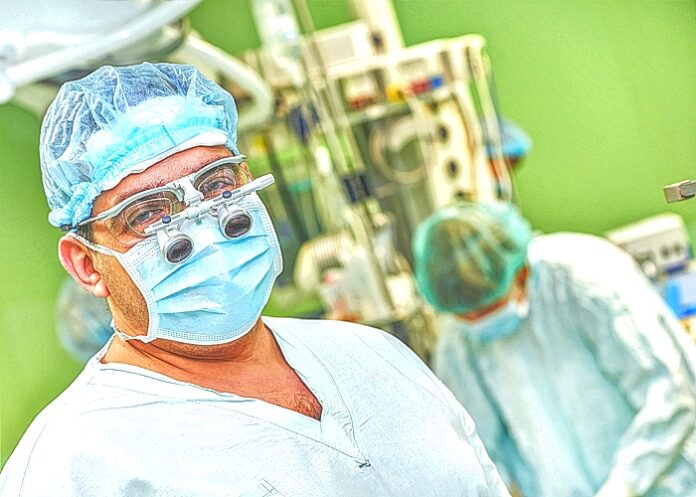Aerospace engineers and brain surgeons are not necessarily brighter than the general population, according to a study in the British Medical Journal. The study examined various aspects of cognition, only neurosurgeons showed a significant difference, with quicker problem-solving speed but slower memory recall compared with the general population.
Researchers examined data from an international cohort of 329 aerospace engineers and 72 neurosurgeons who completed 12 tasks online using the Great British Intelligence Test (GBIT) from the Cognitron platform, and answered questions around their age, sex and levels of experience in their speciality.
The tasks examined various aspects of cognition, including planning and reasoning, working memory, attention, and emotion processing abilities. The researchers then compared the results against those previously gathered from more than 18,000 members of the British public.
The findings reveal that only neurosurgeons showed a significant difference, with quicker problem-solving speed but slower memory recall compared with the general population.
“The difference in problem-solving speed exhibited by neurosurgeons might arise from the fast-paced nature of neurosurgery, which attracts those with a pre-existing flair for rapid processing, or it could be, albeit less likely, a product of training for rapid decision-making in time-critical situations,” the researchers noted.
The Guardian reports that the study was, in part, carried out to lay to rest the question of whether one of the professions had the intellectual upper hand – a tension made famous by the Mitchell and Webb sketch in which a swaggering neurosurgeon is slapped down by an aerospace expert who says: “Brain surgery … itʼs not exactly rocket science is it?”
However, the team found few differences between the cognitive abilities of aerospace engineers and neuroscientists, although the results suggest the former had higher scores for attention and mental manipulation – such as rotating objects in oneʼs head – while neurosurgeons showed higher scores in semantic problem solving, such as definitions of rare words.
“Essentially what we think it shows is that everyone has a range of skills, some people are better at some things and other people are better at other things, and it is very difficult to be better in everything across the board,” said Aswin Chari, a neurosurgical trainee at Great Ormond Street Hospital and an author of the study.
Referencing the two professions in the study, Chari added: “It is not that they are better at everything, but they are better at certain things that make them good at what they do.”
It may therefore be best to ditch rocket science and brain surgery idioms for phases like “itʼs a walk in the park”, added the researchers.
“It is also possible that other professions might deserve to be on that pedestal, and future work should aim to determine the most deserving group,” they said.
Study details
“It’s not rocket science” and “It’s not brain surgery”—“It’s a walk in the park”: prospective comparative study
Inga Usher, Peter Hellyer, Keng Siang Lee, Robert Leech, Adam Hampshire, Alexander Alamri, Aswin Chari.
Published in British Medical Journal on 13 December 2021
Abstract
Objective
To compare cognitive testing scores in neurosurgeons and aerospace engineers to help settle the age old argument of which phrase—“It’s not brain surgery” or “It’s not rocket science”—is most deserved.
Design
International prospective comparative study.
Setting
United Kingdom, Europe, the United States, and Canada.
Participants
748 people (600 aerospace engineers and 148 neurosurgeons). After data cleaning, 401 complete datasets were included in the final analysis (329 aerospace engineers and 72 neurosurgeons).
Main outcome measures
Validated online test (Cognitron’s Great British Intelligence Test) measuring distinct aspects of cognition, spanning planning and reasoning, working memory, attention, and emotion processing abilities.
Results
The neurosurgeons showed significantly higher scores than the aerospace engineers in semantic problem solving (difference 0.33, 95% confidence interval 0.13 to 0.52). Aerospace engineers showed significantly higher scores in mental manipulation and attention (−0.29, −0.48 to −0.09). No difference was found between groups in domain scores for memory (−0.18, −0.40 to 0.03), spatial problem solving (−0.19, −0.39 to 0.01), problem solving speed (0.03, −0.20 to 0.25), and memory recall speed (0.12, −0.10 to 0.35). When each group’s scores for the six domains were compared with those in the general population, only two differences were significant: the neurosurgeons’ problem solving speed was quicker (mean z score 0.24, 95% confidence interval 0.07 to 0.41) and their memory recall speed was slower (−0.19, −0.34 to −0.04).
Conclusions
In situations that do not require rapid problem solving, it might be more correct to use the phrase “It’s not brain surgery.” It is possible that both neurosurgeons and aerospace engineers are unnecessarily placed on a pedestal and that “It’s a walk in the park” or another phrase unrelated to careers might be more appropriate. Other specialties might deserve to be on that pedestal, and future work should aim to determine the most deserving profession.
See more from MedicalBrief archives:
Major study debunks race and class theories of intelligence
Higher cognitive function linked to wearing glasses
Sex differences in the human brain — long-awaited Edinburgh study
Very preterm or very low birthweight associated with lower IQ into adulthood

